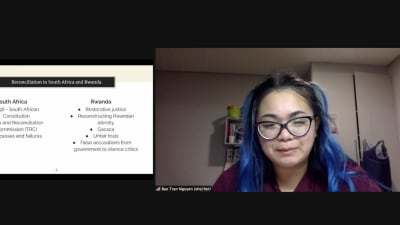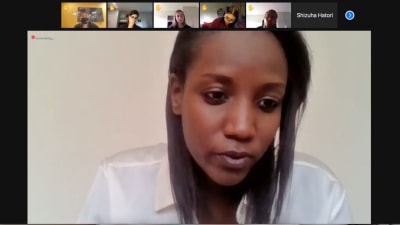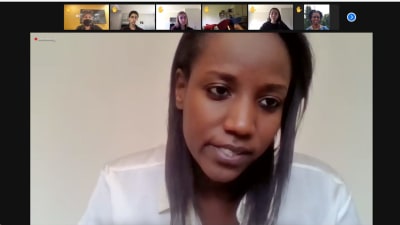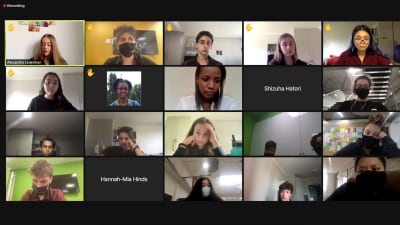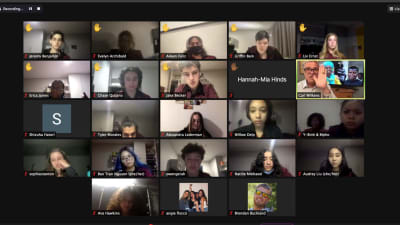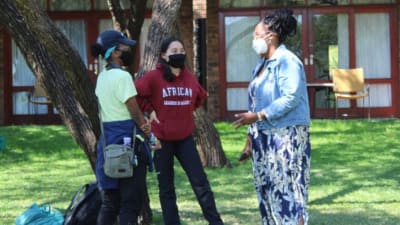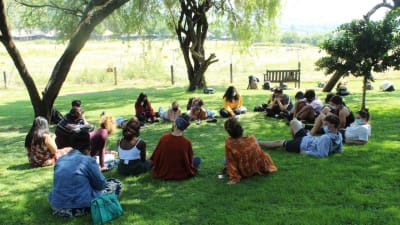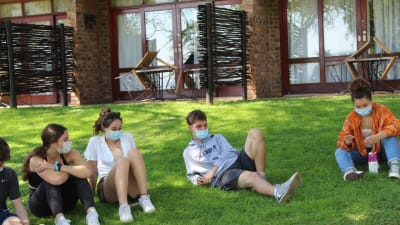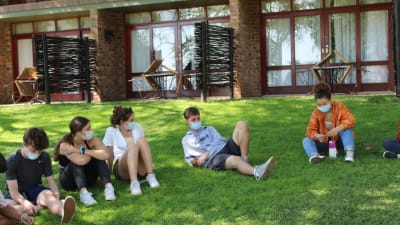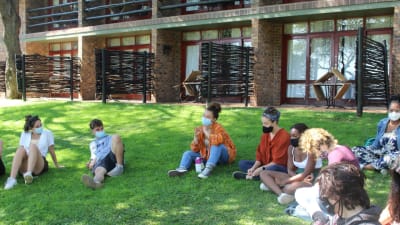“Nothing can be changed until it is faced” : Public Health and Reconciliation Case Studies
James Baldwin famously wrote, “Not everything that is faced can be changed. But nothing can be changed until it is faced.” In the last few weeks, SEGL at ALA students have faced two major case studies of profound relevance in South Africa, hoping to understand how change has happened and continues to happen: Public Health and National Reconciliation.
Our Public Health case study began with a short pre-lecture from faculty member Mpho Mphahlele, which focused on the intersection of public health and the economy. At the start of the COVID-19 pandemic, the South African government imposed one of the strictest lockdowns in the world, which included a complete ban on the sale of alcohol. While many found this unnecessarily stringent, the theory–and the result–was that there would be fewer hospitalizations due to alcohol poisoning and drunk driving accidents, freeing up all available hospital beds for COVID-19 patients. In this session, the students considered the trade-offs that arise when balancing the physical and economic health of a nation.
Then, the students met with Ms. Pontsho Pilane, a journalist, editor, media lecturer and trainer who has focused on the intersections of gender, health and class in post-apartheid South Africa. In that conversation, they connected the issue of COVID-19 vaccine distribution to the famous ethical “Heinz Dilemma” that they tackled at the very beginning of the semester. In a final deliverable, the students simulated taking the South African government to court. In groups, they represented different sectors (small businesses, education, the opposition party, etc) and were tasked with drafting new policies that will benefit as many sectors as possible as South Africa begins to recover from the pandemic year.
Next, we launched into an extended, comparative case study on national reconciliation efforts in post-Apartheid South Africa and in post-genocide Rwanda. This two-week case study opened with a lecture from faculty member Y-Binh Nguyen on restorative vs. retributive justice and how these different approaches relate to reconciliation. We then heard from two guest speakers in ALA’s African Studies department, Mr. Jeremy Keen and Dean Tinhiko Nkuna, who contextualized the situations in South Africa and Rwanda for the students. (It is always exciting to have our own colleagues share their expertise!) Curious to know what some of the theoretical principles of reconciliation look like in action, students had the opportunity to meet with Mr. Sullivan Mphahlele, a successful South African businessman whose focus is on Black Economic Empowerment (BEE) as a part of South Africa’s reconciliation. He currently consults with large enterprises and multinationals to improve their BEE compliance.
After March break, we picked up this reconciliation case study with beloved SEGL guest speaker Carl Wilkens. Carl meets with our DC program every year as part of a case study on the 1994 genocide in Rwanda and U.S. intervention (or lack thereof). In the SEGL at ALA program, our case study focuses instead on the years since 1994 and what the process of rebuilding Rwanda has looked like. In a wide-ranging conversation, students asked Carl about his own decision to remain in Rwanda during the genocide; media coverage of genocide, then and now; parallels with the current situation in Tigray, Ethiopia; whether it is unethical to choose not to forgive; the role of guilt in reconciliation. The conversation with Carl gave them the context and the openness to make the most of an incredible next guest speaker: Carine Rusesabagina, the daughter of Paul Rusesabagina, hero of the movie Hotel Rwanda. After living for many years in exile and openly criticizing the government of Rwandan President Paul Kagame, Mr. Rusesabagina was arrested and detained last August. His trial has received significant media attention in the last several weeks, and his daughter, Carine, is working tirelessly to free her father. The international community and human rights groups have condemned the prosecution. Carine spoke openly and vulnerably with the students about her own experience fleeing the genocide as a child and her ongoing efforts to preserve her father’s legacy.
Finally, the students put all of their new knowledge into practice with an assignment to pick a region of the world in conflict and propose a process of reconciliation. Carl Wilkens returned as a guest expert, this time joined by Natasha Uwimanzi of Aegis Trust, an organization working to prevent genocide, crimes against humanity and mass atrocities worldwide. In small groups, the students presented thoughtfully rendered proposals for resolving conflicts in Nigeria, Haiti/the Dominican Republic, the United States/Indigenous Territories, Vietnam/Cambodia, and North/South Korea. Our guest experts were moved and impressed, and it is clear that our students could someday pursue careers in peace-building around the globe.
This week, we start our Social Venture Project (SVP) capstone curriculum, which is enhanced by our partnership with ALA’s Entrepreneurial Leadership department. After looking out into the world over the last several months, SEGL at ALA students will now consider how to put their newfound skills to use in their home communities!
